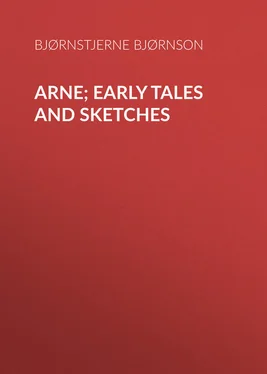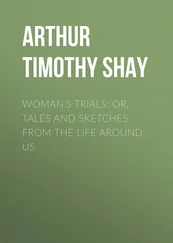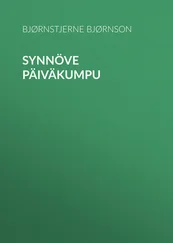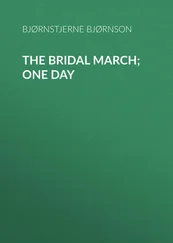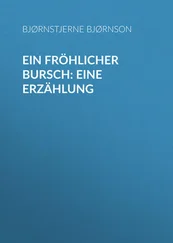Bjørnstjerne Bjørnson - Arne; Early Tales and Sketches
Здесь есть возможность читать онлайн «Bjørnstjerne Bjørnson - Arne; Early Tales and Sketches» — ознакомительный отрывок электронной книги совершенно бесплатно, а после прочтения отрывка купить полную версию. В некоторых случаях можно слушать аудио, скачать через торрент в формате fb2 и присутствует краткое содержание. Жанр: foreign_antique, foreign_prose, на английском языке. Описание произведения, (предисловие) а так же отзывы посетителей доступны на портале библиотеки ЛибКат.
- Название:Arne; Early Tales and Sketches
- Автор:
- Жанр:
- Год:неизвестен
- ISBN:нет данных
- Рейтинг книги:4 / 5. Голосов: 1
-
Избранное:Добавить в избранное
- Отзывы:
-
Ваша оценка:
- 80
- 1
- 2
- 3
- 4
- 5
Arne; Early Tales and Sketches: краткое содержание, описание и аннотация
Предлагаем к чтению аннотацию, описание, краткое содержание или предисловие (зависит от того, что написал сам автор книги «Arne; Early Tales and Sketches»). Если вы не нашли необходимую информацию о книге — напишите в комментариях, мы постараемся отыскать её.
Arne; Early Tales and Sketches — читать онлайн ознакомительный отрывок
Ниже представлен текст книги, разбитый по страницам. Система сохранения места последней прочитанной страницы, позволяет с удобством читать онлайн бесплатно книгу «Arne; Early Tales and Sketches», без необходимости каждый раз заново искать на чём Вы остановились. Поставьте закладку, и сможете в любой момент перейти на страницу, на которой закончили чтение.
Интервал:
Закладка:
At Kampen a change had taken place. The grandmother had been growing very feeble of late, and when she realized this she strove harder than ever to save money enough to pay off the last installment on the gard. "Then you and the boy will have all you need," she said to her daughter. "And if you let any one come in and waste it for you, I will turn in my grave." During the autumn, too, she had the pleasure of being able to stroll up to the former head-gard with the last remaining portion of the debt, and happy was she when she had taken her seat again, and could say, "Now that is done!" But at that very time she was attacked by her last illness; she betook herself forthwith to her bed, and never rose again. Her daughter buried her in a vacant spot in the churchyard, and placed over her a handsome cross, whereon was inscribed her name and age, with a verse from one of Kingo's 6 6 A Dane, the most noted psalmist of Scandinavia.
hymns. A fortnight after the grandmother was laid in her grave, her Sunday gown was made over into clothes for the boy, and when he put them on, he became as solemn as though he were his grandmother come back again. Of his own accord, he went to the book with big print and large clasps she had read and sung from every Sunday, opened it, and there inside found her spectacles. These the boy had never been permitted to touch during his grandmother's lifetime; now he timidly took them up, put them on his nose, and looked through them into the book. All was misty. "How strange," thought the boy, "it was through them grandmother could read the word of God." He held them high up toward the light to see what the matter was, and – the spectacles lay on the floor.
He was much alarmed, and when the door at that moment opened, it seemed to him as though his grandmother must be coming in, but it was his mother, and behind her, six men, who, with much tramping and noise, were bearing in a litter, which they placed in the middle of the floor. For a long time the door was left open, so that it grew cold in the room.
On the litter lay a man with dark hair and pale face; the mother moved about weeping. "Lay him carefully on the bed," she begged, herself lending a helping hand. But while the men were moving with him, something made a noise under their feet. "Oh, it is only grandmother's spectacles," thought the boy, but he did not say so.
CHAPTER III
It was in the autumn, as before stated. A week after Nils the tailor was borne into Margit Kampen's home, there came word to him from the Americans that he must hold himself in readiness to start. He lay just then writhing under a terrible attack of pain, and, gnashing his teeth, he shrieked, "Let them go to hell!" Margit stood motionless, as though he had made no answer. He noticed this, and presently he repeated slowly and feebly, "Let them – go."
As the winter advanced, he improved so much that he was able to sit up, although his health was shattered for life. The first time he actually sat up, he took out his fiddle and tuned it, but became so agitated that he had to go to bed again. He grew very taciturn, but was not hard to get along with; and as time wore on, he taught the boy to read, and began to take work in at home. He never went out, and would not talk with those who dropped in to see him. At first Margit used to bring him the parish news; he was always gloomy afterwards, so she ceased to do so.
When spring had fairly set in, he and Margit would sit longer than usual talking together after the evening meal. The boy was then sent off to bed. Some time later in the spring their bans were published in church, after which they were quietly married.
He did his share of work in the fields now, and managed everything in a sensible, orderly way. Margit said to the boy, "There is both profit and pleasure in him. Now you must be obedient and good, that you may do your best for him."
Margit had remained tolerably stout through all her sorrow; she had a ruddy face and very large eyes, which looked all the larger because there was a ring round them. She had full lips, a round face, and looked healthy and strong, although she was not very strong. At this period of her life, she was looking better than ever; and she always sang when she was at work, as had ever been her wont.
One Sunday afternoon, father and son went out to see how the crops were thriving that year. Arne ran about his father, shooting with a bow and arrow. Nils had himself made them for the boy. Thus they passed on directly up toward the road leading past the church and parsonage, down to what was called the broad valley. Nils seated himself on a stone by the roadside and fell to dreaming; the boy shot into the road and sprang after his arrow, – it was in the direction of the church. "Not too far away!" said the father. While the boy was playing there, he paused, as though listening. "Father, I hear music!" The father listened too; they heard the sounds of fiddling, almost drowned at times by loud shouts and wild uproar; but above all rose the steady rumbling of cart-wheels and the clatter of horses' feet; it was a bridal procession, wending its way home from church. "Come here, boy," shouted the father, and Arne knew by the tones of the voice that he must make haste. The father had hurriedly risen and hidden behind a large tree. The boy hastened after him. "Not here, over there!" cried the father, and the boy stepped behind an alder-copse. Already the carts were winding round the birch-grove; they came at a wild speed, the horses were white with foam, drunken people were crying and shouting; father and son counted cart after cart, – there were in all fourteen. In the first sat two fiddlers, and the wedding march sounded merrily through the clear air, – a boy stood behind and drove. Afterwards came a crowned bride, who sat on a high seat and glittered in the sunshine; she smiled, and her mouth drew to one side; beside her sat a man clad in blue and with a mild face. The bridal train followed, the men sat on the women's laps; small boys were sitting behind, drunken men were driving, – there were six people to one horse; the man who presided at the feast came in the last cart, holding a keg of brandy on his lap. They passed by screaming and singing, and drove recklessly down the hill; the fiddling, the voices, the rattling of wheels, lingered behind them in the dust; the breeze bore up single shrieks, soon only a dull rumbling, and then nothing. Nils stood motionless; there was a rustling behind him, he turned; it was the boy who was creeping forward.
"Who was it, father?" But the boy started, for his father's face was dreadful. Arne stood motionless waiting for an answer; then he remained where he was because he got none. After some time he became impatient and ventured again. "Shall we go?" Nils was still gazing after the bridal train, but he now controlled himself and started on. Arne followed after. He put an arrow into the bow, shot it, and ran. "Do not trample down the grass," said Nils gruffly. The boy let the arrow lie and came back. After a while he had forgotten this, and once when his father paused, he lay down and turned summersaults. "Do not trample down the grass, I say." Here Arne was seized by one arm, and lifted by it with such violence that it was almost put out of joint. Afterward, he walked quietly behind.
At the door Margit awaited them; she had just come in from the stable, where she had evidently had pretty hard work, for her hair was tumbled, her linen soiled, her dress likewise, but she stood in the door smiling. "A couple of the cows got loose and have been into mischief; now they are tied again."
"You might make yourself a little tidy on Sunday," said Nils, as he went past into the house.
"Yes, there is some sense in tidying up now that the work is done," said Margit, and followed him. She began to fix herself at once, and sang while she was doing so. Now Margit sang well, but sometimes there was a little huskiness in her voice.
Читать дальшеИнтервал:
Закладка:
Похожие книги на «Arne; Early Tales and Sketches»
Представляем Вашему вниманию похожие книги на «Arne; Early Tales and Sketches» списком для выбора. Мы отобрали схожую по названию и смыслу литературу в надежде предоставить читателям больше вариантов отыскать новые, интересные, ещё непрочитанные произведения.
Обсуждение, отзывы о книге «Arne; Early Tales and Sketches» и просто собственные мнения читателей. Оставьте ваши комментарии, напишите, что Вы думаете о произведении, его смысле или главных героях. Укажите что конкретно понравилось, а что нет, и почему Вы так считаете.
